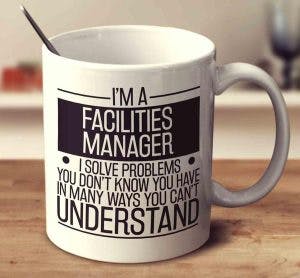
Facilities Manager

If you’re highly organised, work well under pressure and enjoy coordinating and planning, the role of a facilities manager could be ideal for you
As a facilities manager, you’ll be responsible for the management of services and processes that support the core business of an organisation. You’ll ensure that best practices are followed for maximum efficiency and that the most suitable working environment is attained for its employees and their activities.
This is a diverse field with a range of responsibilities, which are dependent on the structure and size of the organisation. You’ll be involved in both strategic planning and day-to-day operations, particularly in relation to buildings and premises. Likely areas of responsibility include:
- building and grounds maintenance
- cleaning
- catering and vending
- health and safety
- procurement and contract management
- security
- space management
- utilities and communications infrastructure.
Responsibilities
As a facilities manager, you’ll need to:
- prepare documents to put out tenders for contractors
- project manage, supervise and coordinate the work of contractors
- investigate the availability and suitability of options for new premises
- calculate and compare costs for required goods or services to achieve maximum value for money
- plan for future development in line with strategic business objectives
- manage and lead change to ensure minimum disruption to core activities
- direct, coordinate and plan essential services such as reception, security, maintenance, mail, archiving, cleaning, catering, waste disposal and recycling
- ensure buildings meet health and safety requirements and that facilities comply with legislation
- keep staff safe
- plan best allocation and utilisation of space and resources for new buildings, or re-organising of current premises
- check that agreed work by staff or contractors has been completed satisfactorily and follow up on any deficiencies
- coordinate and lead one or more teams to cover various areas of responsibility
- use performance management techniques to monitor and demonstrate achievement of agreed service levels and to lead on improvement
- respond appropriately to emergencies or urgent issues as they arise and deal with the consequences.
Qualifications
You don’t need to have a specific degree to enter this role but the following subjects may improve your chances:
- building management
- business studies
- construction
- engineering and building services engineering
- facilities management
- hospitality
- management
- surveying
- property
Skills
You’ll need to demonstrate:
- interpersonal, relationship-building and networking skills
- procurement and negotiation skills
- the ability to multitask and prioritise your workload
- confident decision making
- time management skills
- project management skills
- the ability to draw information from various sources, including people
- clear and concise writing skills and the ability to handle long and complex documents
- teamwork skills and the ability to lead and motivate others
- IT skills
- a practical, flexible and innovative approach to work.
A full driving license may be required, if travelling between sites.
Work experience
Pre-entry experience is desirable and a placement year in industry from a relevant degree can be particularly useful for gaining skills and building a network of contacts. Experience can be particularly useful in areas such as:
- administration
- building
- business
- construction
- engineering
- management
Having some previous experience in the hospitality sector is also valuable, as you’ll need strong interpersonal skills and the ability to work with a range of people.
Read more here.